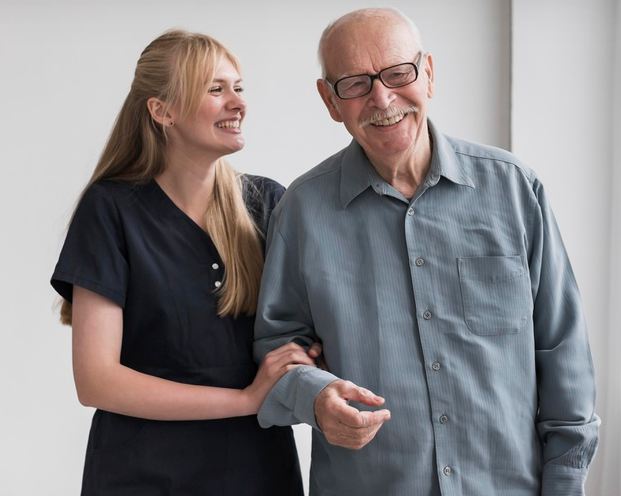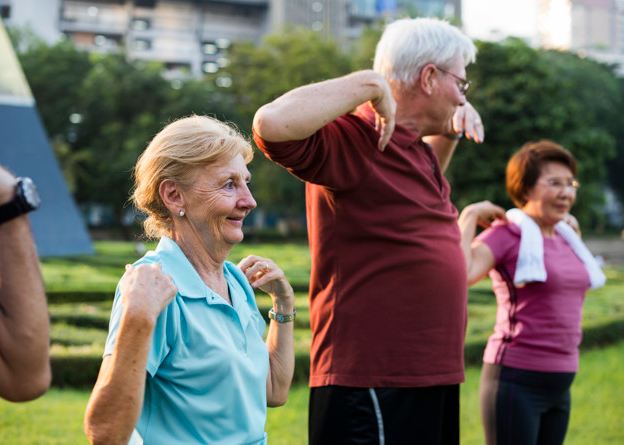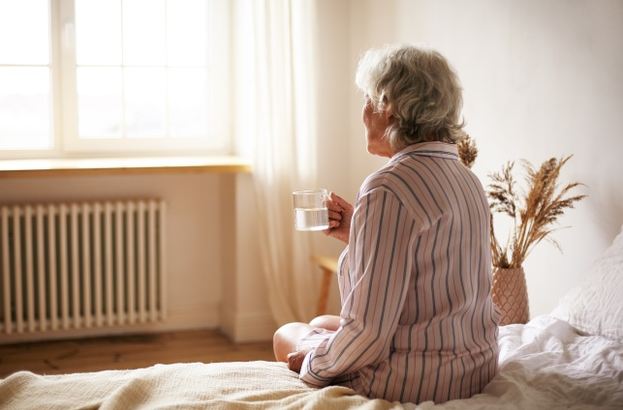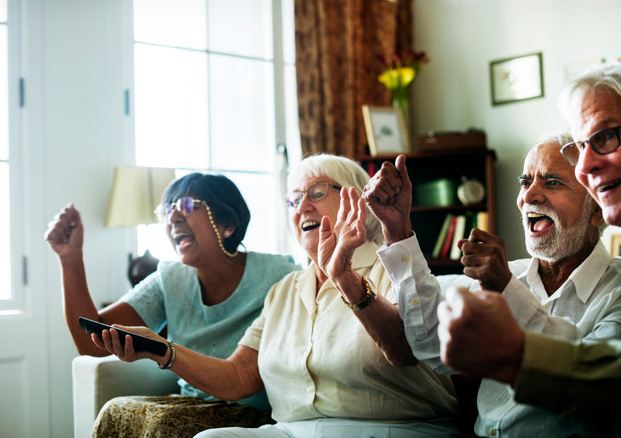With aging being a fact of life, most of us one day will not only become old but see our loved ones as senior citizens as well. You might even have an elderly loved one right now in the form of grandparents or parents. While we hope most of them are in healthy shape, aging brings forth a steep decline in mental and physical vitality. Knowing how to care for them is imperative for their well-being till they bid us a final goodbye.
Instead of sending your elderly loved ones to nursing homes, we recommend keeping them at their home or with you for an elevated lifestyle. Your loved ones need more than just medications: your presence, time, and social inclusion. Seniors at home do much better because of better social interaction, nutrition, personal supervision, and mental stimulation.
It is also less expensive, and elders no longer have to go through their assets rapidly. Therefore, find support for your seniors and make yourself acquainted with all medical fundamentals for keeping them well.
However, care for the elderly at home takes a lot of planning. Whatever way it happens, it may involve significant lifestyle changes, and it’s best to plan for it in advance. Let’s have a look at tips and ideas to care for your elderly at home!
Gather All Necessary Medical Information
Taking care of seniors and the elderly at home is one big responsibility, requiring lots of work and energy. Before you get into the acts of caregiving, your first and foremost priority should be gathering all the necessary information you will need. From their medical documents to first aid essentials and medical phone numbers, keep yourself and your family members acquainted with the whereabouts of all in cases of emergency.
Make a drawer with all their medical records and documents. You may also keep digital health records to access them from anywhere. On your fridge, post sticky notes with the phone numbers of emergency medical services and addresses. Remember to post schedules of medicines around you as well. It will help you keep track, additionally enable strangers to take care in your absence in an emergency.
We also recommend mentioning the information of the attorney, family members, and everyone involved in caregiving.
While we recommend disclosing information, you should give it to only trustworthy members to avoid security breaches.
Decide on the power of attorney, an executor, and healthcare directives. Also, it’s ideal to have a letter of instruction, a will, and a living trust with you at all times. The appropriate family members or people involved should all have the same information.
Get Professional Medical Help for Caregiving
With so many healthcare firms working to make elderly home care a reality, you no longer have to feel alone when caregiving. We recommend doing lots of research for getting the right help: the following are some individuals or organizations that we recommend you to seek in your local areas:
- Home healthcare services
- Visiting nurses
- A local pharmacy specialized in independent living aids and assistive devices.
- Geriatric case manager, if needed.
- Visiting companion services: many get referrals from church or senior living campuses.
- Church contacts: many have a visiting parish nurse or a befriender program.
- Local libraries with volunteers for seniors
- Help from state blind or deaf organizations.
- Appropriate, certified organizations with lots of advice and even free devices and materials.
- Neighbors, friends, or family: the ones of help when you are busy.
- Local small businesses that run errands and help with the elderly may also sit with them while you are out.
- Respite care resources
- Adult daycares for social inclusion
- Senior transportation.
- Support groups for you, if needed.
- Hospitals
This list should include phone numbers, addresses, web site addresses, and contact names. Give this list to all family or others who will be involved.
You may also read our article about Elderly Health Care Issues & Solutions for more information.
Help Them Lead a Healthy Life
Helping your seniors lead healthy lives is a vast and tricky topic. There are a plethora of things to take care of: for starters, keep yourself acquainted with the medical conditions they have. Make sure you know about all the possible scenarios that can happen. As several diseases follow suit with aging, there will be multiple things coming and going. However, it is essential to know how to prevent the preventable ones. With professional help, get your seniors a healthy diet and lifestyle changes.
Make sure to take them out often, as isolation is detrimental to mental health. Give affection and a safe place to work out within their capacity. If possible, help them enroll in an elderly yoga program. Not only will they have their body healthy, but they might as well find some friends!
Always have an excess of necessary medicines and supplements. Also, take care of their sleep routines. It is also a good idea to include some medical wipes in their hygiene kits or first aid kits as these are useful. Learn more about it by reading our post about How Beneficial are Medical Wipes for Daily Use?
Talk to your loved one’s doctor and local pharmacist for guidelines about products, sanitation, assistance, procedures, and other matters. Play out possible scenarios in your mind and how you would handle them. What would you do, at least temporarily, and who would you then go to for help.
Take Safety Measures: Proof Your Home for Them
Just like baby-proofing, proofing your homes for a senior is equally essential. For many, elderly caregiving is an eye-opening experience about what things your house needs to have and discard for their safety. Therefore, before you indulge in caregiving, make sure to plan things out well for your elders when they are alone. Revamp areas of the home prone to causing accidents like the bathroom, stairs, bedroom, and kitchen. Quit using chemical cleaners with toxins harmful to them if inhaled. If possible, introduce mats and carpets to avoid them from slipping. We also recommend putting small tables and cornered pieces of furniture a bit away. You can find many catalogs and online sites for senior products that offer lots of solutions.
In the bedroom, you can install bed rails to keep them safe as they sleep. Check out our Guide to Selecting Bed Rails for the best tips and recommendations.
Learn about Senior Activities and Enable Social Inclusion
Care for the elderly at home also involves fun. Plan with your loved one about what activities, hobbies, and projects they enjoy. You may introduce them to easy household chores to keep them busy: it will also allow them to feel a sense of contribution. You should also help them be part of elderly communities for senior activities and social inclusion: isolation can do more wrong than good!
Ask them about which activities would they like to do by themselves: many seniors like reading books or watching movies on their own. Some might even enjoy knitting or crafting.
While you are at this, make sure to help them schedule all their fun activities. They add structure, continuity, and something to look forward to and count on for them. Most elderly also need consistent meal and snack times.
When you go out, decide which outings they can come along on so they feel included. Make sure to actively have time for them: a meal or a staple show together everyday works great! Check our Top Senior Activity Ideas for more to incorporate.
The Bottomline
Your circumstances will be yours. But perhaps these tips and experiences about care for the elderly in the home will trigger more ideas for you. Make sure you plan ahead of time, as it is imperative. Also of utmost importance is to learn to relax and go with the flow, accepting what the reality is.
Relax and enjoy this time with your loved ones, making ever-lovely memories every day. Make sure to seek help when needed, and do not forget self-care, for you can not pour from an empty cup!
As communication throughout is essential, check out our Tips to Effectively Communicate with Elderly Patients!






